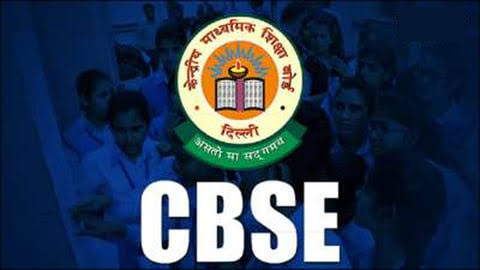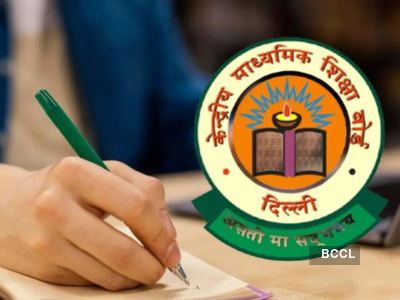In a landmark decision that is set to redefine the academic landscape for millions of students, the Central Board of Secondary Education (CBSE) has announced the introduction of two-term board exams for Class 10, starting from the academic year 2026. The move, which comes after extensive consultations with educators, parents, and policymakers, is being hailed as a positive and student-friendly reform aimed at reducing exam stress, ensuring continuous assessment, and better aligning with global best practices. The announcement, made by CBSE officials in New Delhi, has sparked widespread discussion and anticipation across India’s education sector.
1. CBSE Introduces Two-Term Board Exams for Class 10 from 2026: What Will Change?
The new two-term board exam system will divide the academic year into two equal halves, with each term culminating in a board-conducted examination. Term 1 will be held around November-December, and Term 2 will be conducted in March-April, covering different portions of the syllabus. Each term will carry equal weightage, and the final result will be based on the cumulative performance in both exams. This marks a significant departure from the traditional single, high-stakes board exam held at the end of the year.
CBSE officials have clarified that the syllabus for each term will be clearly demarcated and communicated to schools and students well in advance. Internal assessments, project work, and practicals will continue to play an important role, contributing to the overall evaluation. The board has also announced plans to release detailed guidelines and sample papers by September 2025 to help schools, teachers, and students prepare for the transition.

2. CBSE Introduces Two-Term Board Exams for Class 10 from 2026: Rationale and Expected Benefits
The decision to introduce two-term board exams is rooted in the need to reduce academic pressure and promote holistic learning. Over the years, educators and mental health experts have raised concerns about the intense stress associated with a single, year-end board exam. By splitting the assessment into two manageable segments, CBSE aims to encourage consistent study habits, reduce last-minute cramming, and provide students with multiple opportunities to demonstrate their understanding.
The two-term system is also expected to make the evaluation process more robust and fair. If a student underperforms in one term due to unforeseen circumstances, they will have a chance to compensate in the other term. This approach aligns with the National Education Policy (NEP) 2020, which advocates for continuous and comprehensive evaluation, competency-based learning, and reduced emphasis on rote memorization. The reform is designed to foster critical thinking, creativity, and problem-solving skills among students.
3. CBSE Introduces Two-Term Board Exams for Class 10 from 2026: Implementation Strategy and School Preparedness
To ensure a smooth transition, CBSE has outlined a comprehensive implementation strategy. The board will conduct orientation sessions and workshops for school principals, teachers, and exam coordinators across all affiliated schools. Training modules will focus on syllabus planning, assessment design, and the use of digital tools for exam administration. Schools will be encouraged to update their academic calendars, teaching methodologies, and assessment schedules to align with the new system.
CBSE is also working closely with state education departments and private school associations to address logistical challenges, such as exam center allocation, invigilation, and result processing. The board has assured stakeholders that all necessary support will be provided, including helplines, FAQs, and regular updates through the official CBSE website and mobile app. Special attention will be given to rural and government schools to ensure equitable access to resources and training.
4. CBSE Introduces Two-Term Board Exams for Class 10 from 2026: Reactions from Students, Parents, and Educators
The announcement has elicited a range of reactions from students, parents, and educators. Many students have welcomed the move, expressing relief that the new system will reduce the burden of preparing for a single, all-or-nothing exam. Parents, too, have largely supported the reform, noting that it will help track their children’s progress more effectively and reduce exam-related anxiety at home.
Educators have praised the decision as a step toward modernizing India’s examination system. School principals and teachers believe that the two-term structure will allow for more focused teaching, timely feedback, and better curriculum coverage. However, some have also raised concerns about the increased administrative workload and the need for clear communication to avoid confusion during the transition period.
Addressing Challenges and Ensuring Equity
While the new two-term system has been broadly welcomed, CBSE recognizes the challenges involved in such a significant shift. One concern is ensuring uniformity in teaching and assessment standards across India’s diverse educational landscape. To address this, the board will standardize question papers, grading schemes, and moderation processes. Additionally, CBSE will monitor implementation closely through periodic reviews, school inspections, and feedback mechanisms.
Another key challenge is supporting students who may struggle with the increased frequency of exams. CBSE plans to strengthen counseling services, peer mentoring programs, and stress management workshops. The board is also exploring partnerships with mental health organizations to provide students with accessible support and guidance throughout the academic year.
Digital Integration and Exam Security
As part of the reform, CBSE is investing in digital infrastructure to streamline exam administration, result processing, and communication. The board will enhance its online platforms to enable secure registration, admit card downloads, and real-time updates. Digital tools will also be used to detect and prevent malpractice, ensuring the integrity of the examination process. In the long term, CBSE aims to move toward a blended assessment model, combining online and offline elements for greater flexibility and accessibility.
Impact on Higher Education and Career Planning
The two-term board exam system is expected to influence higher education admissions and career planning for Class 10 students. Colleges and vocational institutes may revise their selection criteria to reflect the new evaluation structure, placing greater emphasis on consistent academic performance. Career counselors believe that the reform will help students make more informed choices about subject streams, extracurricular activities, and long-term goals, as they receive ongoing feedback and guidance throughout the year.
Looking Ahead: A Model for Future Reforms
Education experts view CBSE’s two-term board exam initiative as a potential model for other boards and states to follow. The reform aligns with global trends in assessment, where continuous and comprehensive evaluation is the norm. If successful, the system could be extended to other classes and subjects, further modernizing India’s education system. CBSE has stated that it will closely monitor the outcomes of the first batch and make data-driven adjustments as needed.

Conclusion: A New Era of Assessment and Opportunity
The introduction of two-term board exams for Class 10 by CBSE from 2026 marks a bold and positive step toward a more balanced, student-centric approach to assessment. By reducing exam stress, promoting continuous learning, and aligning with the National Education Policy, the reform promises to benefit millions of students across India. As schools, teachers, and families prepare for this new chapter, the focus will be on collaboration, innovation, and ensuring that every child has the opportunity to succeed.
The two-term board exam system is also expected to foster a more dynamic classroom environment throughout the academic year. Teachers will have the opportunity to pace their lessons more effectively, ensuring that students grasp core concepts before moving on to new topics. This change is likely to encourage more interactive teaching methods, project-based learning, and formative assessments, as educators can track student progress more frequently and adjust their strategies accordingly. The increased frequency of assessments will help identify learning gaps early, allowing for timely interventions and support for students who need it most.
For students, the new system offers a chance to develop better time management and study skills. With two board exams to prepare for, students will need to maintain consistent effort and engagement, reducing the temptation to rely on last-minute cramming. The structure also provides multiple opportunities for self-reflection and improvement, as students can learn from their performance in the first term and make necessary adjustments for the second. This continuous feedback loop is expected to build resilience, confidence, and a deeper understanding of the subjects.
Parents are also set to benefit from the reform, as they will receive more regular updates on their children’s academic progress. The two-term system makes it easier for parents to stay involved in their child’s education, participate in parent-teacher meetings, and support learning at home. With clearer communication and more frequent feedback, families can work collaboratively with schools to address challenges and celebrate achievements throughout the year.
The reform may also influence the way extracurricular activities and co-curricular programs are integrated into the school calendar. With the academic year divided into two terms, schools can plan events, competitions, and enrichment activities more strategically, ensuring that they complement rather than compete with exam preparation. This holistic approach aligns with the National Education Policy’s emphasis on well-rounded development and the cultivation of diverse talents and interests among students.
As the implementation date approaches, CBSE is expected to launch an extensive awareness campaign to inform all stakeholders about the new system. This will include webinars, informational videos, printed guides, and interactive sessions with education experts. The goal is to ensure that students, parents, and teachers are fully prepared for the transition and have access to the resources they need to succeed. Feedback from the first batch of students under the new system will be crucial in refining the process and addressing any unforeseen challenges.

Ultimately, the introduction of two-term board exams for Class 10 is a bold experiment that reflects CBSE’s commitment to continuous improvement and student well-being. While the transition will require adjustment from all stakeholders, the long-term benefits of reduced stress, improved learning outcomes, and a more balanced approach to assessment are expected to far outweigh the initial challenges. As India’s education system evolves to meet the needs of the 21st century, reforms like this will play a pivotal role in shaping the future of the nation’s youth.
Follow: CBSE
Also Read: Alarming Signals: Ola Electric’s Stock Plunges to 52 week Low Amid Mounting Financial Losses

